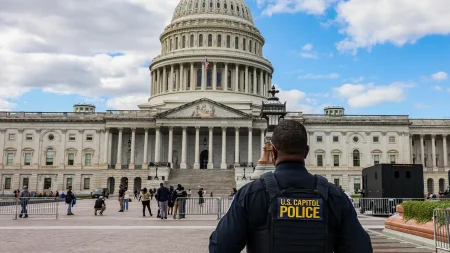Trump’s Rally: A “Yes, King” Affair
Desi Lydic offered a pointed characterization of President Trump’s recent reception, describing it as a “‘yes, king’ rally for Trump.” This concise yet evocative description suggests an atmosphere of uncritical adulation and deference toward the president. Lydic’s choice of words draws a deliberate parallel to the popular phrase “yes, queen,” which is commonly used to express enthusiastic support, but reimagines it in the context of Trump’s reception, implying an almost monarchical reverence from his supporters.
The comment appears to highlight what Lydic perceives as an excessive display of loyalty and affirmation surrounding the president. By framing the event in terms typically associated with royal adoration, she seems to be commenting on both the intensity of support among Trump’s base and perhaps critiquing what she sees as an unhealthy level of devotion to a democratic leader. The terminology suggests concerns about personality cult dynamics within American politics, where critical thinking might be replaced by automatic endorsement.
Lydic’s observation reflects the ongoing discussion about the nature of political support in America’s increasingly polarized landscape. The “king” reference could be interpreted as commentary on the shifting norms of how Americans relate to political figures, moving from citizens evaluating their elected officials toward followers celebrating a leader regardless of actions or policies. This characterization touches on broader concerns about democratic health and the balance between supporting a chosen representative and maintaining the critical distance necessary for accountability.
The brevity of Lydic’s comment belies the complex social and political dynamics it addresses. In modern American politics, where entertainment and governance have become increasingly intertwined, her framing suggests a blurring of the lines between celebrity adulation and political support. The observation invites consideration of how political rallies function not just as policy discussions but as affirmation ceremonies that reinforce group identity and personal loyalty to a charismatic figure.
While Lydic’s comment is clearly critical in tone, it captures a phenomenon recognized across the political spectrum: the intensification of emotional investment in political leaders. The “yes, king” framing suggests followers who are not merely agreeing with policies but affirming the leader’s personal authority and judgment without reservation. This pattern of relationship between leaders and supporters has precedents throughout political history but takes on new dimensions in an era of social media and direct communication between politicians and their bases.
Ultimately, Lydic’s characterization serves as both political commentary and cultural observation, highlighting how traditional boundaries between democratic leadership and more authoritarian or monarchical forms of public devotion may be eroding in contemporary political culture. The pithy description invites viewers to consider the implications of treating democratic leaders with the unquestioning reverence traditionally reserved for monarchs, and what such a shift might mean for the health of representative government and civic discourse.










